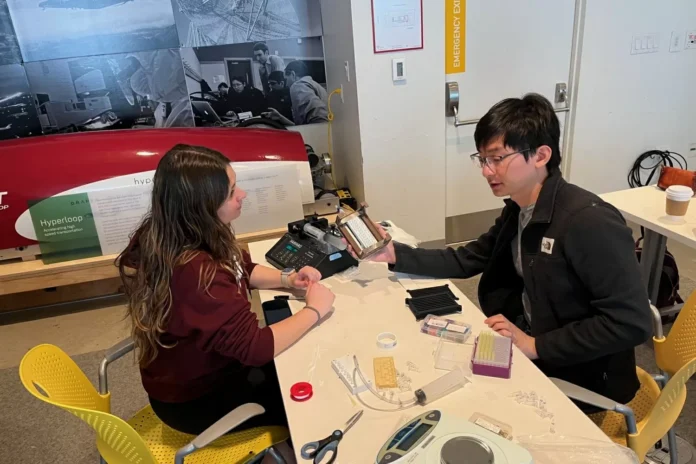MIT students are renowned for their innovative and groundbreaking research. Their latest pilot program has once again proved their determination to push the boundaries of science and technology. In this program, students were given the opportunity to develop tools that can rapidly screen for novel biosynthetic capabilities. This development has the potential to revolutionize the field of biosynthesis and open up new possibilities for drug discovery and sustainable manufacturing.
The pilot program, led by the MIT Department of Biological Engineering, aimed to provide students with hands-on experience in developing tools for biosynthesis. The students were given access to state-of-the-art facilities and resources, as well as guidance from experienced professors and researchers. This allowed them to fully immerse themselves in the project and come up with innovative solutions to the challenges they faced.
The students’ efforts resulted in the creation of a range of tools that can rapidly screen for novel biosynthetic capabilities. These tools utilize cutting-edge technologies such as machine learning and artificial intelligence to analyze large datasets and identify potential biosynthetic pathways. This process, which used to take months or even years, can now be completed in a matter of days, thanks to the students’ developments.
One of the main benefits of this new technology is its potential to accelerate drug discovery. With the rising threat of antibiotic resistance and the need for new and effective treatments, the ability to quickly identify novel biosynthetic pathways is crucial. These pathways can lead to the production of new antibiotics and other life-saving drugs. The students’ tools have the potential to significantly speed up this process and bring new treatments to the market faster.
In addition to drug discovery, the students’ developments also have implications for sustainable manufacturing. Biosynthesis is a process that uses living organisms to produce chemicals and materials. It is a more environmentally friendly alternative to traditional manufacturing methods, which often rely on fossil fuels and produce harmful byproducts. With the ability to rapidly screen for novel biosynthetic capabilities, the students’ tools can help identify new pathways for the production of sustainable materials and chemicals, reducing our reliance on non-renewable resources.
The success of this pilot program is a testament to the talent and dedication of MIT students. They have once again proven their ability to think outside the box and come up with innovative solutions to complex problems. The tools they have developed have the potential to make a significant impact in the fields of drug discovery and sustainable manufacturing.
Furthermore, this program has not only benefited the students but also the scientific community as a whole. The tools developed by the students will be made available to other researchers and companies, allowing them to further build upon the students’ work and potentially make even more groundbreaking discoveries.
The MIT Department of Biological Engineering plans to continue this pilot program and involve more students in the future. This will not only provide students with valuable hands-on experience but also contribute to the advancement of science and technology. With each new batch of students, we can expect to see even more innovative developments in the field of biosynthesis.
The success of this pilot program is a testament to MIT’s commitment to fostering a culture of innovation and excellence. It also highlights the importance of providing students with opportunities to apply their knowledge and skills in real-world settings. This approach not only enhances their learning experience but also prepares them for future challenges in their careers.
In conclusion, the MIT students who participated in the pilot program have made significant contributions to the field of biosynthesis. Their developments have the potential to accelerate drug discovery and promote sustainable manufacturing. This is a remarkable achievement that showcases the ingenuity and determination of MIT students. We can only imagine what other groundbreaking developments they will bring to the world in the future.

